Good vibes make good business
Raglan Food Co leads by example when it comes to looking after their community and the environment.
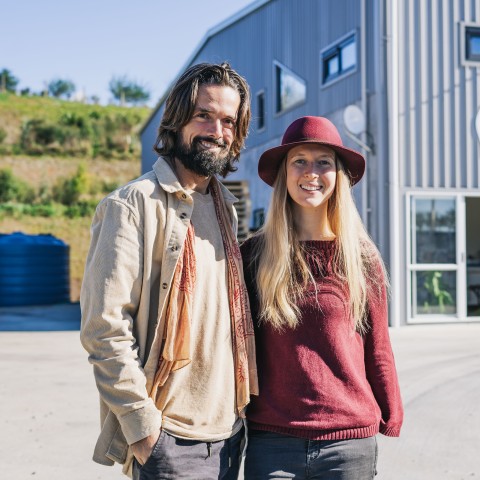
Raglan Food Co leads by example when it comes to looking after their community and the environment.
Latesha had been making coconut yoghurt at home in Raglan for her friend Seb Walter, who is lactose intolerant, and for herself to enjoy as a vegetarian looking to go vegan.
After putting her post online, Latesha was inundated with over 60 enthusiastic responses from people wanting to buy her yoghurt. Not wanting to let anyone down she ramped up production, making enough yoghurt to feed the community - and in doing so, the Raglan Food Co was born.
Latesha and Seb (now her business partner) say they produce yoghurt from coconuts for its superior taste and texture. A minimal footprint on the climate is also a benefit. Latesha says, “coconuts grow bountifully in tropical climates without fertiliser, pesticides and minimal water.”
The pair started by selling yoghurt out of their garage with no real business plan, Latesha says.
“If someone had said to me 10 years ago that we were going to be running a yoghurt company, I would have been like, ‘really?’”
Since then, they’ve added more plant-based products to their line-up, including kefir, a smoothie-like drink, vegan aioli and mayonnaise.
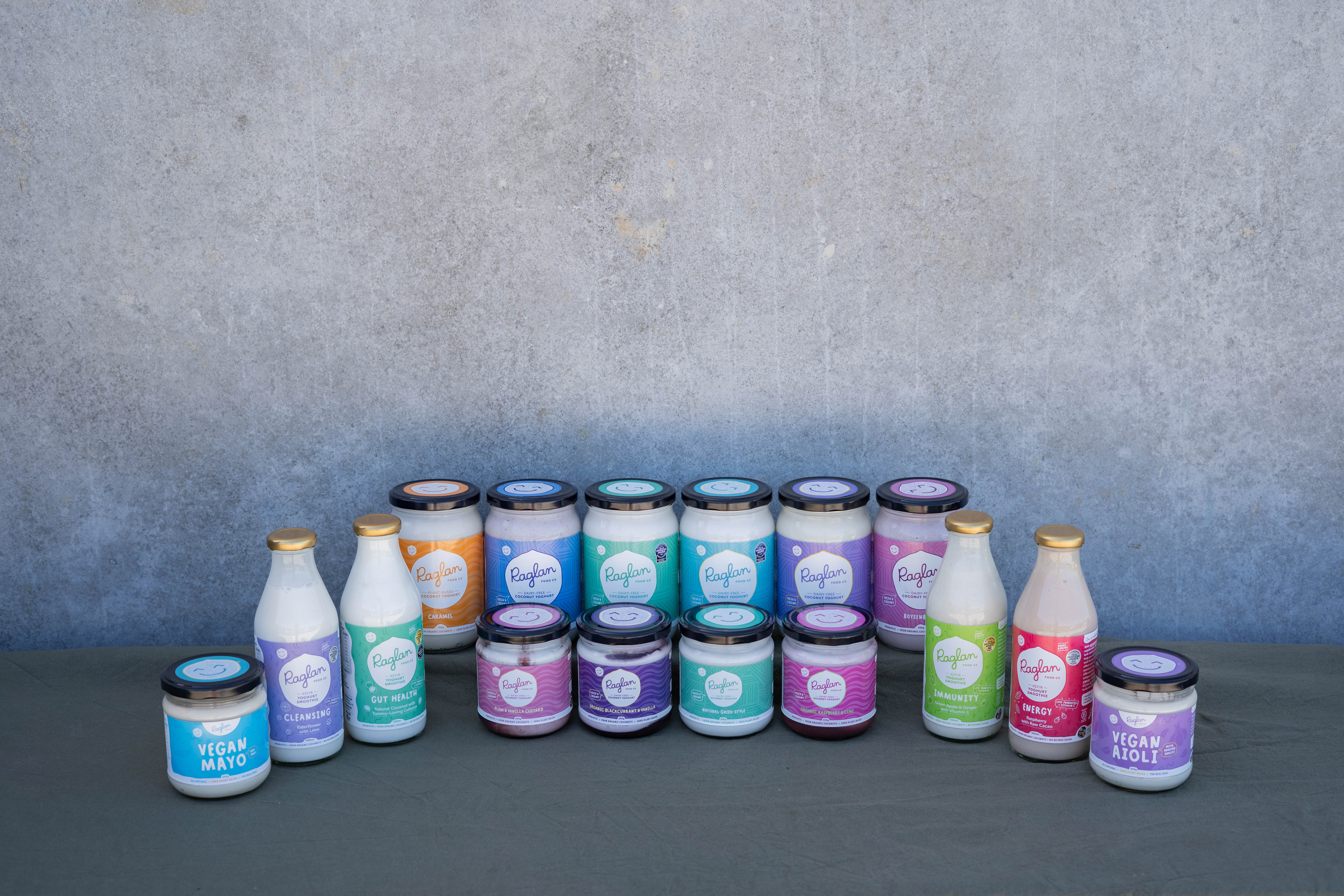
As the business grew, it put positive environmental and social governance at the forefront, with Latesha taking on the role of Head of Impact.
In 2018, Raglan Food Co became carbon neutral certified, working with the internationally-recognised, government-sponsored initiative TOITŪ Envirocare, which helps businesses to measure, manage and mitigate their carbon emissions.
Latesha says gaining carbon neutral accreditation wasn’t a walk in the park.
“You have to track everything to do with running the business in terms of emissions, from fuel, water, waste and all the energy you consume.
“We pay to offset those emissions, with our money going towards a bunch of approved projects like solar and native forests. Then we put targets in place to try and reduce our footprint over time,” she says.
Finding the right energy provider was a key part of becoming carbon zero, says Latesha.
“When we moved into our new factory, we wanted to switch to a company that generated energy only from renewable sources, and that was Meridian.
“It’s really nice knowing that so much of New Zealand’s energy comes from renewable sources. We can actually see Meridian’s Te Uku wind farm on the way to work, it's up on the hills overlooking our factory.”
The next phase will be installing solar panels on the factory roof to help boost the supply of clean energy to the factory.
“So far it's looking like about 99 solar panels could provide over 90% of our day-time energy needs,” says Latesha.
Raglan Food Co isn’t just focused on its emissions. It puts a strong environmental, social and governance (ESG) lens across everything it does to ensure it operates in a socially-friendly way for the wider community. Latesha says, “we like to call it lifting the vibe.”
For Latesha, doing good as a business is how it should be. On top of being certified carbon neutral, Raglan Food Co is certified B Corp, a Fair Wage Employer, and an Ākina Impact Supplier: an accreditation that proves an organisation makes positive impact-led change. Their products are also certified Halal.
All employees are given paid opportunities to volunteer, where they’re encouraged to assist in projects such as planting native trees and shrubs in the Raglan area to restore natural diversity. Their commitment to taking their team on the development journey with them earned them the 2022 Ministry for Primary Industries Supreme Employer Award.
“We're trying to lift the vibe on eating by giving people a plant-based option that they can enjoy, and trying to lift the vibe for our team. We've got this really amazing team culture and wonderful people here and we do all sorts of initiatives for the team,” Latesha says.
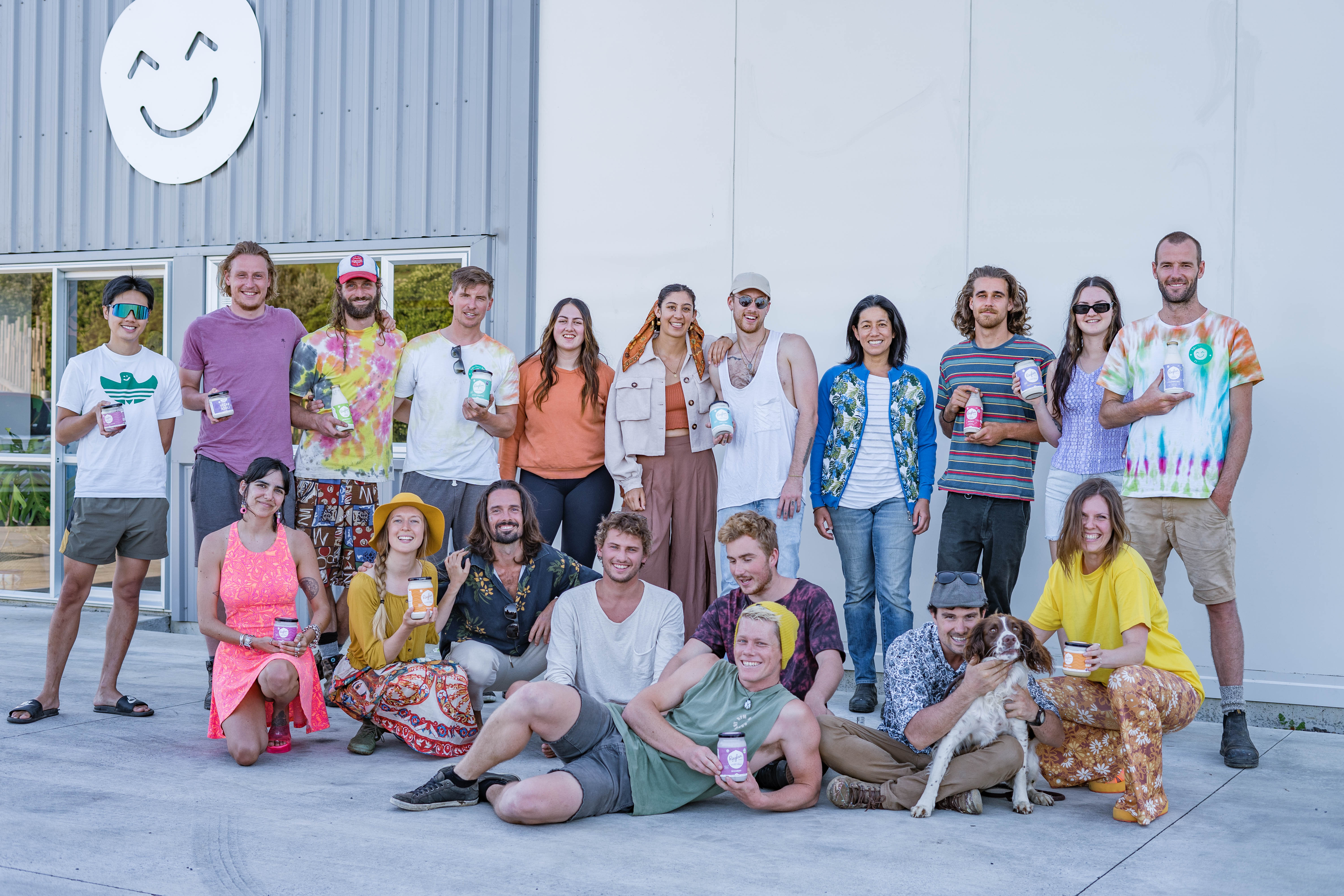
Raglan Food Co has contributed almost $60,000 to initiatives that support communities, the environment and help people make climate saving and well-being boosting changes, which they call their ‘Good Projects’.
Latesha says, “It's meaningful to do these sorts of things. It connects you to others, it makes you more aware of yourself. I think everyone can benefit from doing these things.”
One such project was to remove 1,000,000 pieces of plastic from beaches across the country, offering all the necessary gear as well as free yoghurt to volunteers.
“We started in 2019 and we're nearly over 900,000 pieces. I reckon by the end of this year, we'll crack the million mark,” says Latesha.
“I think it's important for businesses to lead positive change. It feels good to help others, and make things better, and see change happen.”
*Meridian only generates from renewable sources. All the electricity that we supply to our customers comes from the electricity grid, which mixes electricity supplied from both renewable and non-renewable sources.
Learn how New Zealanders from all walks of life leading the way to a zero-carbon Aotearoa. Each of them has overcome the challenge of transitioning to cleaner energy, proving that as a country we have the ideas, the technology and the ambition to make this happen.
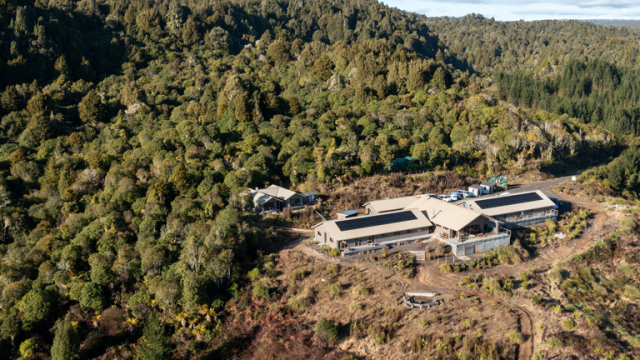
In the Central North Island, a unique lodge is proving it's possible to run an eco friendly tourism business in Aotearoa without burning through fossil fuels.
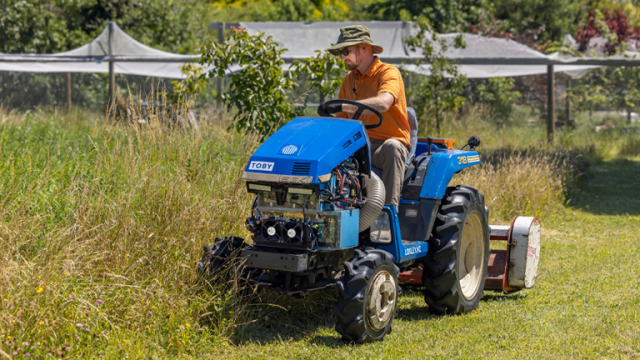
Electrifying a tractor doesn’t just make it cleaner and cheaper to run. It also makes it exponentially more useful, according to Canterbury-based innovator Duncan Aitken.
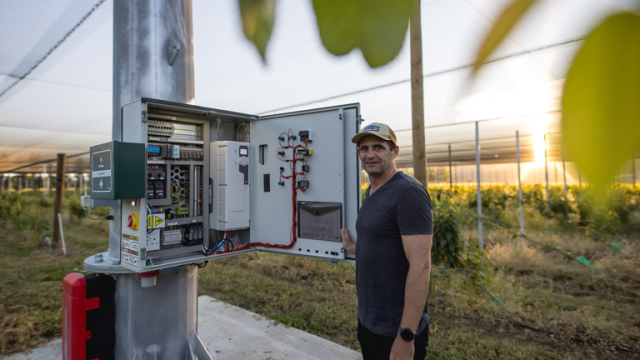
How a small farm near Wānaka changed one couple’s lives - and kickstarted a global movement to grow food completely free of fossil fuels.
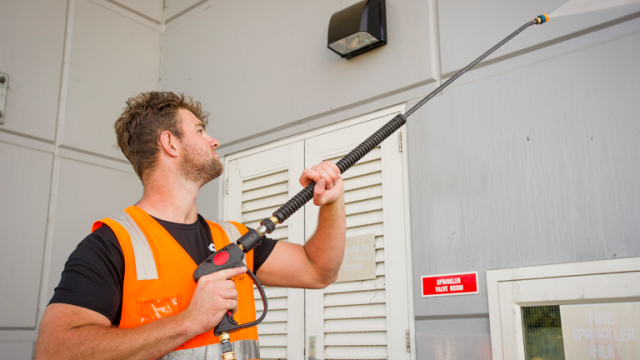
Every day, hundreds of commercial water blasters are pressed into service around New Zealand. They keep our built environments clean but there’s a catch. They’re surprisingly bad for the environment.
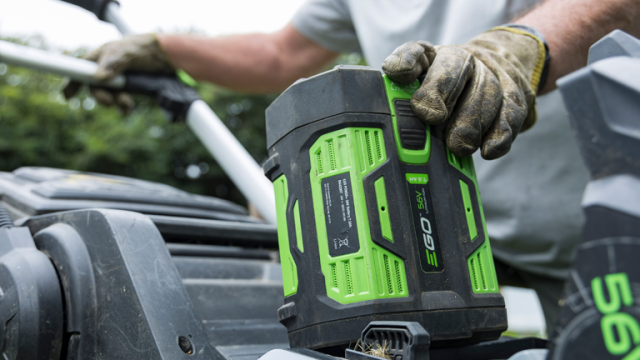
The days of having your peaceful weekends ruined by the sound of lawn mowers and leaf blowers will soon be over.